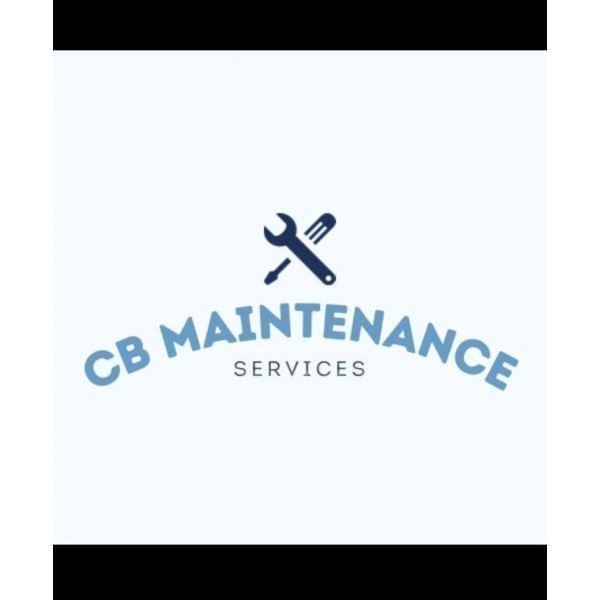Garage Conversions in Conisbrough
Search Garage Conversions in places nearby
Understanding Garage Conversions in Conisbrough
Garage conversions in Conisbrough have become increasingly popular as homeowners seek to maximise their living space without the hassle of moving. Whether you're looking to create a new bedroom, a home office, or a playroom, converting your garage can be a cost-effective and efficient solution. This article will guide you through the ins and outs of garage conversions, ensuring you make informed decisions every step of the way.
The Benefits of Garage Conversions
Converting a garage offers numerous advantages. Firstly, it increases your home's living space, providing room for growing families or new hobbies. Secondly, it can significantly boost your property's value, making it an attractive investment. Additionally, garage conversions are often more affordable than building extensions, as the basic structure is already in place.
Increased Living Space
One of the primary reasons homeowners opt for garage conversions is the need for additional living space. Whether it's a new bedroom for a growing family, a dedicated home office, or a hobby room, a garage conversion can provide the extra space you need without the stress of moving.
Enhanced Property Value
Garage conversions can significantly increase the value of your property. By transforming an underutilised space into a functional room, you make your home more appealing to potential buyers. This can be particularly beneficial in Conisbrough, where property values are on the rise.
Cost-Effective Solution
Compared to building an extension, garage conversions are generally more cost-effective. The existing structure means less work is required, reducing both time and expenses. This makes it an attractive option for those looking to enhance their home on a budget.
Planning Permission and Regulations
Before embarking on a garage conversion in Conisbrough, it's crucial to understand the planning permission and building regulations involved. While not all conversions require planning permission, it's essential to check with your local council to ensure compliance.
When Planning Permission is Required
In some cases, planning permission may be necessary, particularly if the conversion involves significant structural changes or if your property is listed. It's always best to consult with the local planning authority to determine if permission is needed.
Building Regulations Compliance
Regardless of planning permission, all garage conversions must comply with building regulations. These regulations ensure that the conversion is safe and energy-efficient. Key areas include structural integrity, fire safety, insulation, and ventilation.
Designing Your Garage Conversion
Designing your garage conversion is an exciting step in the process. It's an opportunity to create a space that meets your specific needs and complements your home's existing style. Consider factors such as layout, lighting, and storage to ensure a functional and aesthetically pleasing result.
Layout Considerations
When planning the layout, think about how you'll use the space. For instance, if you're creating a home office, you'll need ample desk space and storage. If it's a bedroom, consider the placement of the bed and wardrobe. A well-thought-out layout will maximise the room's potential.
Lighting and Ventilation
Lighting and ventilation are crucial elements of any garage conversion. Natural light can be enhanced with windows or skylights, while adequate ventilation ensures a comfortable environment. Consider installing energy-efficient lighting and ventilation systems to reduce energy costs.
Storage Solutions
Incorporating smart storage solutions into your design can help keep the space organised and clutter-free. Built-in shelves, under-bed storage, and multi-functional furniture are excellent options for maximising storage in a garage conversion.
Choosing the Right Professionals
Hiring the right professionals is key to a successful garage conversion. From architects and builders to electricians and plumbers, each plays a vital role in bringing your vision to life. Take the time to research and select experienced professionals with a proven track record.
Finding a Qualified Architect
An architect can help you design a space that meets your needs and complies with regulations. Look for architects with experience in garage conversions and a portfolio of successful projects. Personal recommendations and online reviews can also be valuable resources.
Selecting a Reliable Builder
Choosing a reliable builder is crucial for ensuring your conversion is completed to a high standard. Obtain multiple quotes and check references before making a decision. A good builder will communicate effectively and keep you informed throughout the process.
Hiring Skilled Tradespeople
Skilled tradespeople, such as electricians and plumbers, are essential for completing the technical aspects of your conversion. Ensure they are fully qualified and experienced in similar projects. It's also wise to verify their credentials and insurance coverage.
Budgeting for Your Garage Conversion
Creating a realistic budget is an essential part of planning your garage conversion. Consider all potential costs, including design, materials, labour, and any unforeseen expenses. A well-planned budget will help you manage your finances and avoid overspending.
Estimating Costs
Begin by estimating the costs of design, materials, and labour. Obtain quotes from multiple professionals to ensure you're getting a fair price. Don't forget to factor in additional expenses, such as permits and inspections.
Setting a Contingency Fund
It's wise to set aside a contingency fund for unexpected costs. This could include unforeseen structural issues or changes to the design. A contingency fund of around 10-15% of your total budget is generally recommended.
Financing Options
If you're unable to cover the costs upfront, consider financing options such as home improvement loans or remortgaging. Be sure to explore all available options and choose one that suits your financial situation.
Common Challenges and Solutions
While garage conversions offer many benefits, they can also present challenges. Being aware of potential issues and their solutions can help you navigate the process smoothly and achieve a successful outcome.
Dealing with Structural Issues
Structural issues, such as dampness or inadequate foundations, can arise during a garage conversion. Address these issues promptly with the help of a qualified professional to ensure the safety and longevity of your conversion.
Managing Space Constraints
Garages are often smaller than other rooms in the house, which can pose space constraints. Creative design solutions, such as open-plan layouts and multi-functional furniture, can help maximise the available space.
Ensuring Adequate Insulation
Proper insulation is crucial for maintaining a comfortable temperature in your converted garage. Invest in high-quality insulation materials and ensure they are installed correctly to prevent heat loss and reduce energy bills.
Environmental Considerations
Incorporating eco-friendly practices into your garage conversion can benefit both the environment and your wallet. Consider sustainable materials, energy-efficient systems, and waste reduction strategies to create a greener space.
Using Sustainable Materials
Opt for sustainable materials, such as reclaimed wood or recycled metal, to reduce your environmental impact. These materials are not only eco-friendly but also add unique character to your conversion.
Installing Energy-Efficient Systems
Energy-efficient systems, such as LED lighting and high-efficiency heating, can significantly reduce your energy consumption. These systems may have a higher upfront cost but can lead to long-term savings on your energy bills.
Minimising Waste
Minimise waste by recycling materials and donating unwanted items. This not only benefits the environment but can also reduce disposal costs. Work with your builder to implement waste reduction strategies throughout the project.
Legal and Safety Considerations
Ensuring your garage conversion complies with legal and safety requirements is essential. This includes adhering to building regulations, obtaining necessary permits, and ensuring the safety of the finished space.
Adhering to Building Regulations
Building regulations cover various aspects of construction, including structural integrity, fire safety, and energy efficiency. Ensure your conversion complies with these regulations to avoid potential legal issues and ensure a safe living environment.
Obtaining Necessary Permits
Depending on the scope of your conversion, you may need to obtain permits from your local council. These permits ensure your project complies with local planning and building regulations. Consult with your architect or builder to determine which permits are required.
Ensuring Safety Standards
Safety should be a top priority in any garage conversion. This includes ensuring proper electrical and plumbing installations, as well as adequate fire safety measures. Work with qualified professionals to ensure all safety standards are met.
Case Studies of Successful Garage Conversions
Exploring case studies of successful garage conversions can provide inspiration and insight into the process. These examples showcase the potential of garage conversions and highlight the creativity and innovation involved.
Transforming a Garage into a Home Office
One homeowner in Conisbrough successfully transformed their garage into a modern home office. By incorporating large windows for natural light and built-in storage for organisation, they created a functional and inviting workspace.
Creating a Guest Suite
Another successful conversion involved turning a garage into a guest suite. With a cosy bedroom, en-suite bathroom, and small kitchenette, this conversion provided a comfortable space for visitors while enhancing the property's value.
Designing a Children's Playroom
A family in Conisbrough converted their garage into a vibrant playroom for their children. By using bright colours, durable materials, and ample storage, they created a safe and enjoyable space for play and creativity.
Frequently Asked Questions
Do I need planning permission for a garage conversion in Conisbrough?
Not all garage conversions require planning permission, but it's essential to check with your local council to ensure compliance with local regulations.
How long does a garage conversion take?
The duration of a garage conversion can vary depending on the complexity of the project. On average, it can take between 4 to 8 weeks to complete.
Can I convert a detached garage?
Yes, detached garages can be converted, but they may require additional considerations, such as connecting utilities and ensuring adequate insulation.
What is the cost of a garage conversion?
The cost of a garage conversion can vary based on factors such as size, design, and materials. On average, it can range from £5,000 to £20,000.
Will a garage conversion add value to my home?
Yes, a well-executed garage conversion can increase your property's value by providing additional living space and enhancing its appeal to potential buyers.
How can I ensure my garage conversion is energy-efficient?
To ensure energy efficiency, invest in high-quality insulation, energy-efficient lighting, and heating systems. Consider using sustainable materials and incorporating natural light where possible.
Garage conversions in Conisbrough offer a fantastic opportunity to enhance your living space and increase your property's value. By understanding the process, planning carefully, and working with experienced professionals, you can create a functional and beautiful space that meets your needs and complements your home.















